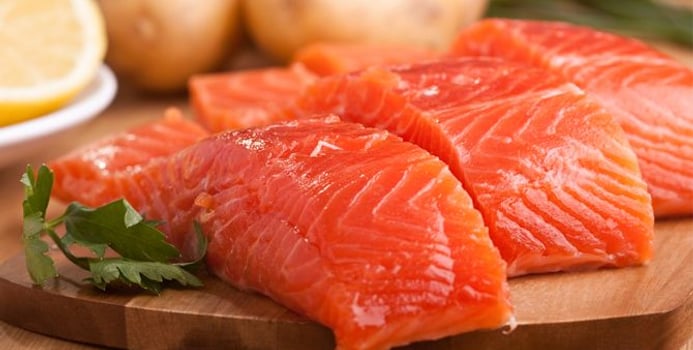Inflammation is the normal and natural response to body injury; however, unnecessary and chronic inflammation can wreak havoc on the body and promote illness. Many times chronic inflammation goes unnoticed for years but eventually may lead to serious illness including heart disease, stroke, cancer, diabetes, sleep and mood disorders, arthritis and Alzheimer's. Due to the increase in chronic disease, the anti-inflammatory diet has gained popularity and media attention. In general, the anti-inflammatory diet is similar to the Mediterranean style of eating and is designed to reduce risk of age-related disease and improve overall health.
Dietary Factors Contributing to Inflammation
One of the largest players in the fight against chronic inflammation is excess body weight. The inflammatory state is a vicious cycle starting with infection or illness that produces inflammation, then insulin resistance followed by weight gain and more inflammation. When an individual starts to gain weight, it can become difficult to get the body out of this constant inflammatory pathway. Typically drastic nutrition and exercise changes are needed. The modern diet contributes to inflammation through a variety of body mechanisms that are not completely understood. Eating too many fried foods, processed foods, omega-6 fats, saturated fat, refined sugar and trans fats have all been linked to increased pro-inflammatory chemicals and hormones that cause cell damage.
Foods to Eat
The anti-inflammatory diet promotes well-balanced eating, but for true success it must be a lifestyle change and not a temporary fix. Due to the anti-inflammatory effects, omega-3 fatty acids such as fresh oily fish, walnuts, flaxseed and fortified eggs are the staples. The primary source of fat is extra virgin olive oil. Only lean meats and vegetable proteins (soybeans, tofu, and soy milk) are allowed. With high levels of antioxidants, a colorful variety of fresh fruits and vegetables are strongly encouraged along with a variety of nuts, 100% whole grains, beans and legumes. Herbs and spices such as garlic, turmeric, ginger, cinnamon, red pepper, cayenne, basil, oregano, paprika and chili peppers play a key role in flavoring foods. An emphasis is placed on organic produce if feasible. As far as beverages, 2-4 servings of green, white and/or oolong tea are recommended and red wine is allowed in moderate amounts (1-2 glasses daily).
Foods to Avoid
The first step in following the anti-inflammatory diet is to eliminate refined, white sugar found in most breads, white potatoes, crackers, chips and other snack foods and sugary beverages. All fast food should be avoided. Label reading should be practiced in order to limit high fructose corn syrup. Foods high in pro-inflammatory fats such as margarine, fatty meats, processed meats, fried foods, regular cheese, vegetable shortening and partially hydrogenated vegetable oils. The plan does suggest avoiding all dairy products thus be sure to obtain calcium from other sources or supplements. Sugar and derivatives are not recommended but agave nectar and stevia products are allowed.
Does it Work?
While the anti-inflammatory diet has not been studied extensively, many aspects of the diet have been associated with better health. Research has shown cultures who eat a diet high in fruits, vegetables, nuts, seeds, fatty fish and healthy oils do have lower rates of chronic disease. Keep in mind that the overall pattern of eating, maintaining a healthy weight and being physically active are the three most important factors in reducing inflammation. The inclusion or elimination of certain foods and nutrients are important but improvement will be blunted if you do not look at the big picture!
Laura N. Kenny is a Registered Dietitian and Certified Dietitian in the state of Indiana. She received both her Bachelor of Science degree in Dietetics and completed her dietetic internship at Purdue University. She is currently pursuing her Master of Science degree from Central Michigan University. Laura works for the Indiana Obesity Center PC under the supervision of Dr. Keith McEwen. She specializes in both surgical and non-surgical weight loss including nutritional adherence, meal planning, and macro/micro nutrient status. Kenny also promotes healthy eating through various speaking engagements throughout Indianapolis and teaches indoor cycling and Pilates classes in her free time. Since staring her dietetics career, she has worked with a variety of populations and chronic diseases. Each summer Laura volunteers at Camp John Warvel, a camp for children with diabetes. She also enjoys writing, sports, exercise, and reading "hot topics" in nutrition. Laura has a true passion for guiding people to choose healthy nutritional choices for each and every individual lifestyle. To contact Laura, email her at [email protected].



